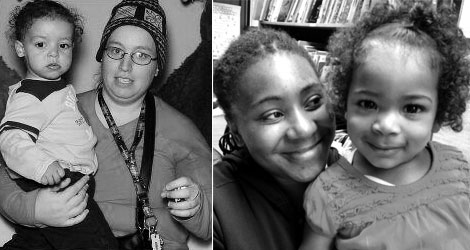Last year we hosted a Rise writing group for mothers with children in foster care and we’ll host another group this spring. I think it’s one of the best value-added programs we’ve done. When the mothers in our program shared their stories with our staff, I was pretty much in awe. These women go through so much and they keep working and keep fighting.
We were interested in offering a Rise writing group because of the therapeutic benefit for the mothers of making sense of their experiences through the process of writing. I also thought it could benefit the mothers’ self-concept. There’s a sense of accomplishment and self-efficacy in completing a story for a magazine. Our mothers were able to see themselves as having a skill, take pride in earning some money, and see their work published.
In addition, it’s important to have the larger community hear about mothers’ experiences. Some of the childhood and life experiences of these mothers are not known to child welfare stakeholders. The Rise stories expand the understanding of the child welfare community. We also try to do that in our work. The more that stakeholders understand how complex people’s lives are and what their needs are, the more they can understand an individual case. The more we know, and the better we understand, the more we can feel for other people.
What wasn’t on my mind—but we saw from hosting the group—is the social support the group provides. The Rise writing group gave our moms the opportunity to be in relationship with other mothers and come out of social isolation. That was an incredible benefit, and we were inspired by the group dynamic and sense of connection we saw among the women in the writing group. Now we’re adding more groups to our work.
Last fall, the Bronx Family Court Early Engagement Workgroup, which I’m a part of, also invited Rise writers to present at Bronx Family Court about the impact of trauma on parents, as part of a series on trauma.
There’s a lot of misconceptions in the courts about who people are whose children get removed, and I’m sometimes very astounded by the misconceptions and lack of knowledge that people have about mental health problems. It shouldn’t be so surprising—these are lawyers and judges, not therapists—but there’s a belief that these are inborn problems that can’t get better, not a sense that bad things happen to people that create problems like depression and PTSD. Terrible things happen to people. We need to help parents heal and recover and prevent these things from happening to children. We’re not looking at bad seeds but bad experiences.
I think things are starting to change. I see a greater understanding of the impact of trauma. Rise’s presentation was a really important contribution. There’s nothing more powerful and important than hearing from a parent. Every time you hear from a parent, it helps people in this field start to see things through a very different lens.

 I’m the director of the Early Childhood Center at Albert Einstein in the Bronx, a therapy program for children under 5 and their parents and caregivers. We have a project with Bronx Family Court to provide parent-child therapy to children in foster care and their parents.
I’m the director of the Early Childhood Center at Albert Einstein in the Bronx, a therapy program for children under 5 and their parents and caregivers. We have a project with Bronx Family Court to provide parent-child therapy to children in foster care and their parents.